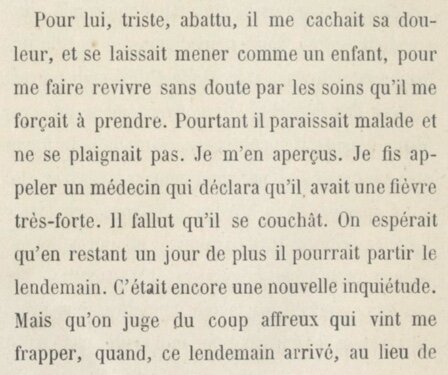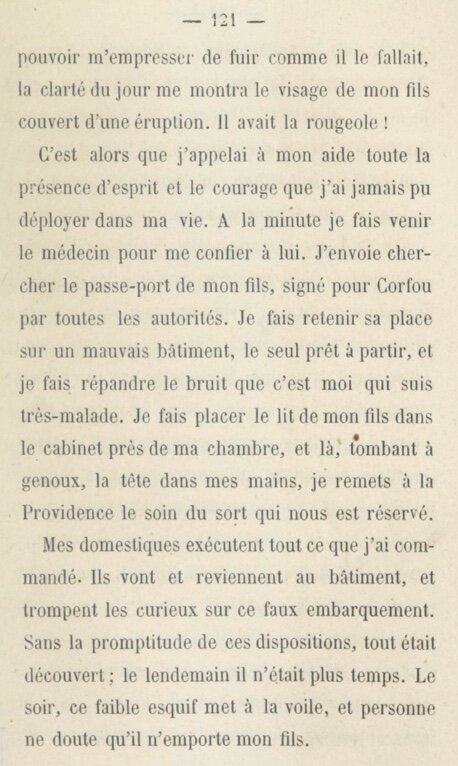Hortense entdeckt, dass Louis Napoléon auch Masern hat.
…
This is the account of how Hortense Bonaparte’s sons were lured into a losing cause that she feared involved a plot to endanger them. In the following passage, Hortense has already lost 1 son to measles and she finds her other son Louis Napoléon afflicted with the same disease.
Louis Bonaparte and Napoléon Louis.
For him [Louis Napoléon], sad, dejected, he hid his pain from me, and allowed himself to be led like a child, to make me come back to life through the care he compelled me to take of him. Yet he looked sick and did not complain. I noticed it. I had a doctor called, who declared that he had a very high fever.
He had to go to bed. We hoped that by staying one more day he could leave the next day. It was yet another worry. But judging by the awful blow that struck me, when, this coming day, instead of being able to hasten to flee as we should have, the light of day showed me the face of my son covered with an eruption. He had measles!
It was then that I called to my aid all the presence of mind and courage that I had ever been able to display in my life. At the minute I bring in the doctor to confide in him, I send for my son's passport, signed for Corfu by all the authorities.
I keep his place on a run down ship, the only one ready to leave, and I spread the rumor that it is I who am very ill. I have my son's bed placed in the closet near my bedroom, and there, falling to my knees, my head in my hands, I give Providence the care of the fate that is in store for us.
My servants do everything I have ordered. They go back and forth to the ship, and deceive the curious on this false boarding.
Without the promptness of these arrangements, everything would’ve been discovered; the next day it would’ve been too late. In the evening, this weak skiff sets sail, and no one doubts that it is carrying my son away.
For him, he is forced to remain at the mercy of his enemies. The smallest indiscretion can expose him, everything is to be feared, and, to bring us even more trouble, in arrives a letter sent to me by my poor husband.
Himself, in despair, he believes that I could have abandoned myself to my own interests. He wrote to me: "Save the son we have left, he must go on board." And he wants to know all the arrangements I have made. I cannot confide in anyone the secret on which his safety depends.
A letter can be read, the mail stopped. I reassure a father about the tender interest which occupies him; I keep the worries for myself alone, and I dictate a letter which tells him what everyone believes, that my son is on board a ship sailing for Corfu. I add that he has a passport under another name, that he is in good health, that I have no worries about him, and that I will join him when my health allows me.
…
C'est le récit de la façon dont les fils de Hortense Bonaparte ont été attirés dans une cause perdante qui, selon elle, impliquait un complot pour les mettre en danger. Dans le passage suivant, Hortense a déjà perdu 1 fils à cause de la rougeole et elle trouve son autre fils Louis Napoléon atteint de la même maladie.
Dies ist der Bericht darüber, wie Hortense Bonapartes Söhne in eine unterlegene Sache gelockt wurden, von der sie befürchtete, dass sie eine Verschwörung zur Gefährdung mit sich brachte. In der folgenden Passage hat Hortense bereits einen Sohn an Masern verloren und findet ihren anderen Sohn Louis Napoléon, der an derselben Krankheit leidet.









